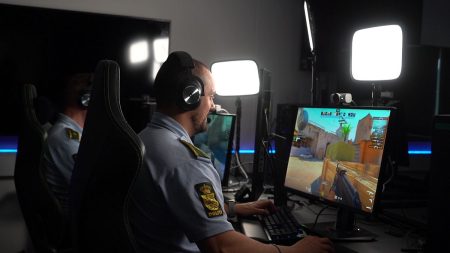In an effort to prepare its citizens for potential crises, Sweden has reissued a wartime pamphlet, ‘In Case of Crisis or War,’ initially published during World War II. This updated version reflects the changing global landscape and the country’s concerns over increasing disinformation campaigns that threaten societal trust and resilience. Sweden’s Civil Contingencies Agency (MSB) is urging approximately five million households to fortify their defenses against online misinformation, which the agency warns occur frequently to manipulate perceptions and create divisions among the populace. The government emphasizes the importance of relying on information from credible sources and encourages citizens to engage in a collective psychological defense against disinformation, reinforcing the notion that individual actions play a significant role in national security.
Carl-Oskar Bohlin, Sweden’s Civil Defence Minister, has underscored the urgency of this initiative by stating that the current security environment is more precarious than it has been since the end of World War II. His statements come amid the backdrop of increasing global tensions and conflict, compelling the Swedish populace to recognize the shared responsibility in defending their nation. By promoting awareness about the potential for misinformation to undermine public resolve, the government aims to cultivate a more informed and resilient citizenry. This strategic approach to national readiness encompasses both psychological preparedness and practical measures to safeguard personal and community resilience.
The current iteration of the pamphlet marks its sixth update since its inception in 1940, reflecting Sweden’s evolving understanding of crisis management and civil defense. The historical context of the pamphlet showcases Sweden’s commitment to prepping its citizens for emergencies, particularly during times of geopolitical unrest. The most recent updates concerning digital disinformation and cyber threats, acknowledged in the 2024 version, signify a noteworthy shift in focus. Coupling traditional civil defense tactics with contemporary issues, the Swedish government is adapting to newer forms of warfare that extend beyond physical confrontations, addressing the importance of safeguarding information systems and promoting critical thinking among citizens.
In addition to promoting psychological resilience against misinformation, the Swedish authorities advise citizens on practical digital security measures. These include establishing strong passwords, avoiding suspicious email links, and regularly backing up crucial data. The government emphasizes the need for both individual and collective efforts to build a robust national defense, extending an invitation for citizens to engage meaningfully in safeguarding their community. This proactive stance not only fosters a sense of individual responsibility but also aims to build a cohesive national identity centered around mutual defense and resilience.
The renewed pamphlet also incorporates contemporary topics such as NATO’s involvement in crisis response, reflecting Sweden’s recent membership in the alliance. This acknowledgment of international cooperation in the realm of national defense emphasizes the interconnected nature of security in the modern world. Citizens will receive the updated pamphlet through digital mailboxes or traditional mail, which represents a further modernization of crisis communication and preparedness strategies. This dissemination of critical information aligns with efforts to engage the public in national security discussions while promoting an informed citizenry capable of responding to various challenges.
Sweden is not alone in issuing wartime guidance to its citizens; other Nordic nations have similarly released guidelines to enhance national preparedness amidst global instability. For instance, Finland’s wartime booklet addresses the threat of cyberattacks targeting essential services, while Denmark encourages citizens to verify information before sharing it. Norway provides general self-sufficiency tips during crises, though it lacks specific guidance on digital threats. Together, these efforts in the Nordic region reflect a broader commitment to fostering preparedness and resilience among citizens in the face of contemporary challenges, illustrating the pressing need for effective communication in a world increasingly fraught with uncertainty.














